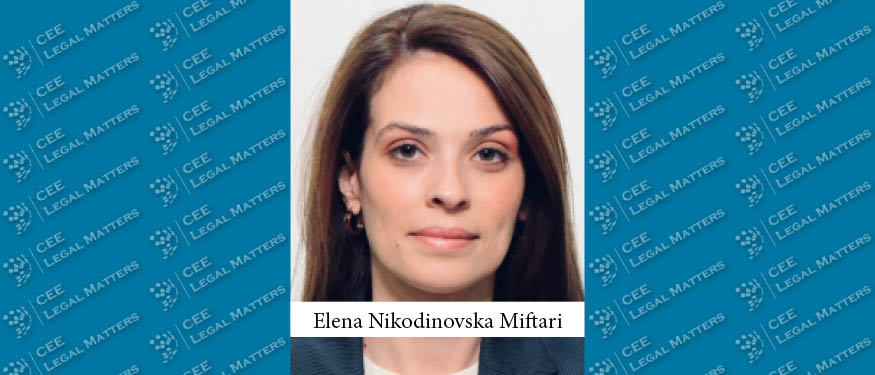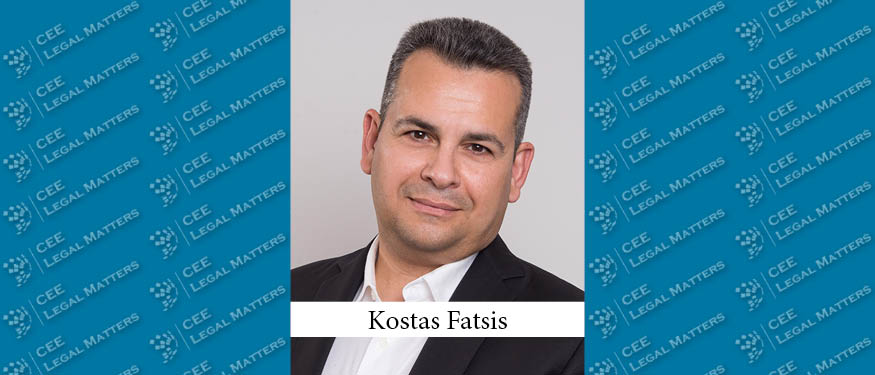Sweeping tax reform, corporate governance, and procurement regulation updates have been the main legislative developments in Lithuania this year, according to Widen Partner Aiste Mikociuniene. While some of the changes bring modernization and new incentives, Mikociuniene warns that increased burdens and uncertainties could weigh heavily on businesses and legal professionals alike.
Increased Regulators' Scrutiny in Turkiye: A Buzz Interview with Sinan Diniz of KST Law
Turkiye is seeing a surge in regulatory enforcement, particularly in the areas of antitrust and environmental compliance, according to KST Law Partner Sinan Diniz. From high-profile investigations into global tech giants to the adoption of a new Climate Law, regulators are keeping up with both local and global trends.
North Macedonia's Digital Agenda: A Buzz Interview with Elena Nikodinovska Miftari of Law Office Emil Miftari
In recent months, North Macedonia has introduced key legislative reforms in digital transformation, construction, energy, and the judiciary to support its economic and institutional development, according to Law Office Emil Miftari Attorney at Law Elena Nikodinovska Miftari.
Throwing A Wrench in Hungarian M&As: A Buzz Interview with Jozsef Bulcsu Fenyvesi of Oppenheim
Hungary’s M&A market may have had a slower start to the year, but activity quickly ramped up, keeping lawyers busier than ever, according to Oppenheim Partner Jozsef Bulcsu Fenyvesi. Still, Fenyvesi notes, a recent and short-lived amendment to the country’s FDI regime introduced serious delays and even potential state intervention into an already complex transactional landscape.
Greece Rides the Wave: A Buzz Interview with Kostas Fatsis of AKL
Greece continues to ride a wave of investment interest, with momentum building across real estate, hospitality, renewables, and increasingly, digital infrastructure, according to AKL Partner Kostas Fatsis, who walks us through the latest legislative developments shaping the market, including energy reforms, FDI screening, and judicial modernization.
Kosovo's Energy Conundrum: A Buzz Interview with Vjosa Shkodra of Lex Business
Kosovo’s shift to a liberalized energy market has prompted business pushback, with courts stepping in to ensure stability as companies navigate rising costs, limited suppliers, and a lack of clear regulatory guidance, according to Lex Business Managing Partner Vjosa Shkodra.
Little Outside the Political Realm in Georgia: A Buzz Interview with Lasha Gogiberidze of BGI Legal
Georgia’s legal market has seen limited meaningful legislative activity over the past year, with political developments dominating the agenda, according to BGI Legal Senior Partner Lasha Gogiberidze, who mentions a few notable regulatory changes, ongoing uncertainty surrounding foreign agent legislation, and a major dispute outcome that could impact investor confidence going forward.
The Pre-Pandemic Glory Days in the Czech Republic: A Buzz Interview with Lukas Hejduk of CMS
The Czech real estate market is experiencing its strongest periods since before the pandemic, with significant activity across hotels, retail, logistics, and offices, according to CMS Partner and Head of CEE Real Estate and Construction, Lukas Hejduk. Strong domestic capital, successful investment legislation, and high demand are driving the market.
If Out Shopping in Slovakia: A Buzz Interview with Bruno Stefanik of Wolf Theiss
With the European Parliament recently approving a new draft FDI regulation, significant changes are on the horizon across the EU, and Slovakia is no exception. According to Wolf Theiss Partner Bruno Stefanik, the anticipated updates will impact Slovakia’s national legislation, reshape existing FDI procedures, and offer a timely opportunity to address practical challenges identified since the country’s FDI regime took effect in 2023.
The Promise of Tomorrow in Ukraine: A Buzz Interview with Iurii Dynys of DLF
Ukraine’s legal market continues to operate under extraordinary pressure, shaped by the ongoing war and its widespread impact on all facets of business and governance, according to DLF Counsel and Head of Banking & Finance and Agriculture Iurii Dynys. Despite the challenges, the demand for core legal services remains high, with growing attention paid to post-war reconstruction planning, emerging industries, and navigating the tumultuous investment climate.
Overseeing Albania's Overseers: A Buzz Interview with Dorant Ekmekciu of Hoxha, Memi & Hoxha
Albania’s start to 2025 has been largely shaped by national elections, which have stalled most developments, according to Hoxha, Memi & Hoxha Partner Dorant Ekmekciu. The focus has been on key judicial appointments and ongoing discussions about the independence of the anti-corruption body.
The ADR Appeal in Moldova: A Buzz Interview with Natalia Balaban of Balaban & Partners
Moldova’s legal landscape is undergoing a period of gradual yet meaningful transformation, according to Balaban & Partners Managing Partner Natalia Balaban who reports an increased reliance on alternative dispute resolution, strides in digitalization, and a wave of legislative reforms tied to the country’s EU accession ambitions.
Taxing Times in Romania: A Buzz Interview with Adriana Dobre of Bancila, Diaconu si Asociatii
With a new president taking office in May and a shifting fiscal landscape, Romania is navigating a period of political and legal recalibration, according to Bancila, Diaconu si Asociatii Partner Adriana Dobre.
Streamlining Regulations in Poland: A Buzz Interview with Piotr Szelenbaum of Fieldfisher
Poland’s legal market is in flux, shaped by international activities and sweeping regulatory reforms, according to Fieldfisher Partner Piotr Szelenbaum, with local and global developments fueling momentum across different sectors, from AI and cybersecurity to crypto and capital markets.
Keeping It In The Family in Croatia: A Buzz Interview with Matea Gospic Plazina of Gospic Plazina Stojs
Croatia’s transactional and legal landscape is heating up, with a strong pre-summer push across multiple sectors and a growing alignment with international standards, according to Gospic Plazina Stojs Partner Matea Gospic Plazina, who reports that this environment is driving fresh momentum in capital markets, M&A, and the increasingly layered world of family wealth management.
An Uptick Despite Ongoing Turbulence in Georgia: A Buzz Interview with Ketti Kvartskhava of BLC Law Office
Georgia’s legal and business landscape remains heavily influenced by political turbulence, according to BLC Law Office Managing Partner Ketti Kvartskhava, who reports ongoing instability, controversial legislation, and heightened uncertainty surrounding the country’s EU integration prospects.
The Tax Burden in Slovenia: A Buzz Interview with Pia Florjancic Pozeg Vancas of Peterka Partners
Slovenia’s dynamic political environment is keeping the legal market on its toes, with pressing developments in taxation, employment law, cybersecurity, capital markets, and infrastructure all demanding close attention, according to Peterka Partners Senior Associate and Head of Slovenian office Pia Florjancic Pozeg Vancas.
Serbia's Protests, Slowdown, and First Issuance: A Buzz Interview with Maja Jovancevic Setka of Karanovic & Partners
Serbia’s economy remains stable despite slower growth, with signs of renewed M&A activity, ongoing regulatory reforms, and progress in renewables and the capital market, according to Karanovic & Partners Partner Maja Jovancevic Setka.

































